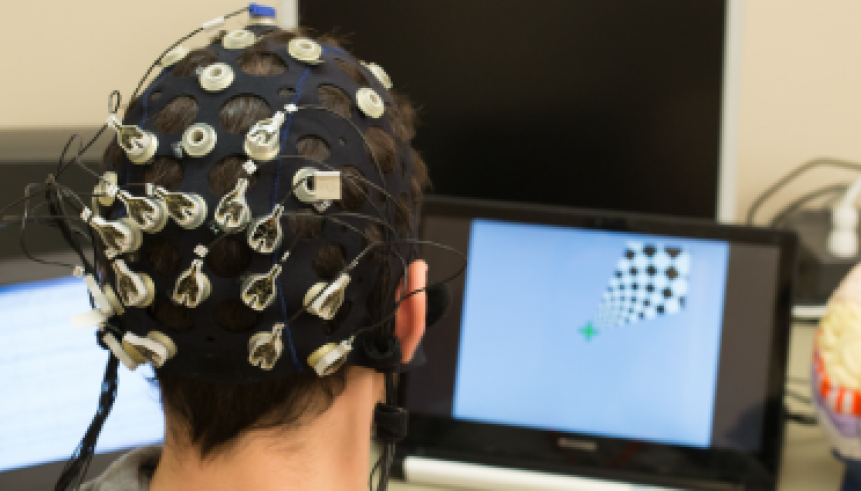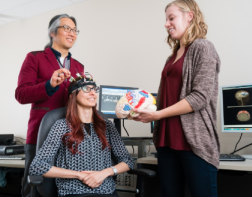Introducing Brain-Computer Interfaces
Brain-computer interfaces (BCIs) are state-of-the-art and user-centric technologies. For individuals with complex disabilities and who are non-verbal, BCIs open a new world of communication and meaningful participation in life activities.
Imagine the idea of controlling your environment, simply by thinking about it. By harnessing thought-patterns, you can potentially eliminate barriers to communication.

How it works
BCIs translate brain activity into commands to control surrounding technology. A collection of sensors detect brain activity and convert them into electrical signals which are processed by machine learning algorithms. Once the desired type of brain response such as imagined speech, and/or emotional state is detected, the computer generates the corresponding control command. Applications are numerous and can include independent mobility (e.g. driving a wheelchair), communication (e.g. assistive communication devices) or even participation in therapeutic arts. BCIs create endless possibilities for intuitive, hands-free interaction with the world.
Acknowledgements
This project is funded in part by the Government of Canada
Opportunity
We welcome sponsored research and partnership inquiries. To submit partnership proposals, please complete the intake form below:
